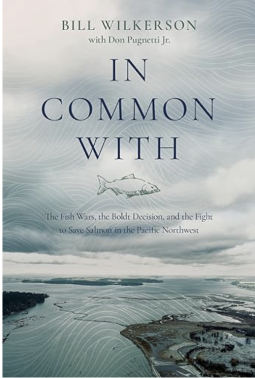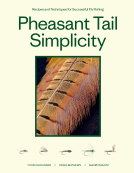
In Common With
The Fish Wars, the Boldt Decision, and the Fight to Save Salmon in the Pacific Northwest
by Bill Wilkerson
This title was previously available on NetGalley and is now archived.
Send NetGalley books directly to your Kindle or Kindle app
1
To read on a Kindle or Kindle app, please add kindle@netgalley.com as an approved email address to receive files in your Amazon account. Click here for step-by-step instructions.
2
Also find your Kindle email address within your Amazon account, and enter it here.
Pub Date Feb 13 2024 | Archive Date Feb 11 2024
Girl Friday Productions | Legacy House Press
Talking about this book? Use #InCommonWith #NetGalley. More hashtag tips!
Description
In the 1960s and ’70s, the waters of Washington State boiled with conflict.
Because of state actions and policies, Washington Tribes had long been denied their fair share of the salmon harvest granted by treaties adopted by the US government and the Tribes in 1854. Tribal members staged “fish-ins” and other demonstrations, and ultimately pursued a federal lawsuit against the state. Decided in 1974 by US district court judge George H. Boldt, the landmark ruling gave Tribes an equal share of fish, meaning yields for non-Native fishermen plummeted. As a result, many non-Native commercial fishing businesses closed, and chaos and legal disputes continued into the 1980s. All the while, the number of salmon available for harvest steadily declined.
During this post-Boldt period, a group of Tribal and government leaders collectively decided change was sorely needed. Through collaboration, they forged major, seemingly unattainable agreements to cooperatively manage fisheries, all while protecting and enhancing salmon runs. Author Bill Wilkerson, then fisheries director for the state of Washington, and legendary Tribal leader Billy Frank Jr. were among a select group of courageous visionaries who worked to bring peace to state waters and reverse the steady decline of salmon runs. Without Frank’s dedicated participation in these talks, legitimizing the process in the view of local Tribes, it’s unlikely these agreements would have ever been made. In Common With is an insider’s look at a number of successful negotiations between historic adversaries. They included an international salmon treaty between the US and Canada, a long-term cooperative management agreement between the state and Tribes, and a major accord between the state, Tribes, and forestland managers to protect salmon habitat on privately owned forestlands.
This groundbreaking feat of diplomacy and partnership revealed the power of honoring one another’s opinions, needs, and wants. This spirit of cooperation and dedication to common ground serves as a shining example for contemporary leaders in today’s polarized political landscape.
A Note From the Publisher
Please leave your review on NetGalley and Goodreads: https://www.goodreads.com/book/show/199214872-in-common-with?from_search=true&from_srp=true&qid=9od7DnI9vN&rank=1
Marketing Plan
NetGalley
KIRKUS Review
Ebook discount promotion
A+ content on Amazon
NetGalley
KIRKUS Review
Ebook discount promotion
A+ content on Amazon
Available Editions
| ISBN | 9781737595359 |
| PRICE | $6.99 (USD) |
| PAGES | 324 |
Links
Available on NetGalley
Average rating from 4 members
Featured Reviews
Growing up as a avid sportsman and fisherman, I remember when the Boldt decision was issued. It's effects were huge. Basically, it ruled that Native American people (from their treaties), were entitled to half of the total catch of fish in a fishery. In Wisconsin, I remember the anger and racism directed at Natives, as they exercised their rights to spear walleyes, even during spawning seasons. Law enforcement was called to defuse explosive situations occurring at boat landings. Now I live in the Pacific Northwest. Where the Boldt decision was decided. And I still hear fishermen lamenting the decision, even 50 years later.
The author was one of the men who was tasked with implementing the decision. He teamed with "white" fishermen, Native fishermen, fisheries biologists, and politicians to ensure the court's wishes were carried out.
In the book, he describes all of the factors and behind the scenes maneuvering that took place.
In my opinion, however, the book loses it's effectiveness by the amount of exhaustive detail the author goes into. It seems like he has documented every meeting, lunch, and phone call over the course of 4o years. It really is exhausting. I wish he had just edited the book down, it would have been much more interesting to read. This book will do well in college libraries, where future students can see all the documentation. It will be valuable in that sense. But as far as a casual read, it's just too much.
Readers who liked this book also liked:
Yvon Chouinard; Craig Mathews; Mauro Mazzo
Crafts & Hobbies, Outdoors & Nature, Sports
Ezra Claytan Daniels
Comics, Graphic Novels, Manga, General Fiction (Adult), Horror
John Lee Bishop
Biographies & Memoirs, Nonfiction (Adult), True Crime
Lorene Edwards Forkner
Crafts & Hobbies, Home & Garden, Reference
















